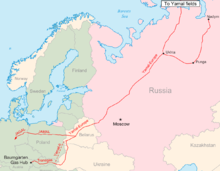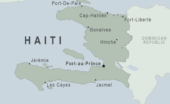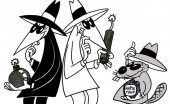Re Ian Bremmer 'Could third-party candidates upend the 2024 US election?' 3 April The current political movement in the USA…
Wednesday Night #1529 with David & Terry Jones
Written by Diana Thebaud Nicholson // June 22, 2011 // Absent Friends, David/Terry Jones, Herb Bercovitz, John Jonas, Reports // 1 Comment
Scribe’s Prologue
Whether by evolution, revolution, domination, greed or other frequently encountered if unworthy human traits, the world is changing in many ways. Our ancient ancestors feared the gods who lived high in the mountains and, having climbed Mount Olympus finding it devoid of human or divine life, concluded that God was therefore to be found in the sky. We have landed on the moon, but He apparently lives elsewhere. However, considering human hubris, it is not surprising that unless and until the true God is located, there will be no shortage of humans who claim insight into the sole will of the Deity through interpretation of texts written by humans, frequently through memory, opiates or imagination. … When God creates Man, the world is in harmony; when Man creates God, the world is at risk.
At the risk of being accused of confusing the profane with the religious, one cannot help but ponder the future fate of governments in North America and the populations that elected them. The situation of the government of the United States appears disastrous, while the greatest danger to Canada is likely its inability to make decisions in its own interest.
The Report For photos, video and more see Wednesday-Night.com
 Russia is building the Yamal -Europe pipeline – at 4,000+ km the longest in the world. At the behest of neodymium suppliers from Brazil, Wednesday Night’s “Man of Steel” John Jonas is providing technical counsel for the 1,100 km Siberian portion, which extends from Bovanenkovo on the Arctic Sea to Ukhta, and will require 1.2 million tons of steel.
Russia is building the Yamal -Europe pipeline – at 4,000+ km the longest in the world. At the behest of neodymium suppliers from Brazil, Wednesday Night’s “Man of Steel” John Jonas is providing technical counsel for the 1,100 km Siberian portion, which extends from Bovanenkovo on the Arctic Sea to Ukhta, and will require 1.2 million tons of steel.
John, who has been working for some years on how to prevent steel bursts resulting from extreme cold will be advising the Russians on how to avoid the potential disaster of the steel pipeline bursting under pressure in the Siberian cold. The gas will pass through the pipeline compressed to one hundred and twenty-fifth of its volume. The way to prevent steel bursts is to make the steel properly – a subtle and delicate process which Canada, along with the U.S., Korea, Japan and a few other countries have perfected, but the Russians do not [yet] know how to do.
Rare earths
Reference to neodymium led to a discussion of rare earths. While the Chinese have currently cornered the market, it is expected that their monopoly will be broken within a few years. [Editor`s note: surprisingly, no reference was made to the recurring reports of Afghanistan’s treasure trove of rare earths.]
Update 4 July: Japan finds rare earths in Pacific seabed
Japanese researchers say they have discovered vast deposits of rare earth minerals, used in many hi-tech appliances, in the seabed.
How to explain the election results?
Given the nature of the Jones’ fact-finding mission, much of the evening’s discussion was devoted to the Canadian political scene, recent election outcome and fate of the sovereignist cause.
The bipolar shift from the political centre to the left in the recent election invites interpretation unsupported by factual evidence other than the electoral results. Even in traditionally Liberal Westmount Liberal, Marc Garneau, the ideal, highly respected candidate, was re-elected by only by a small margin.
Canadians’ simultaneous shift to the political right and left is easily explainable but not nearly as easily comprehensible. The voting youth (whose numbers, it is suspected remained low in this election), have traditionally tested the electoral waters with affiliation with the party of the left, but the number of NDP Members of Parliament elected apparently reflects dissatisfaction on the part of the electorate with the Liberal and Conservative parties as well as the Bloc. If true, this would explain the fate of the Liberal party, while the success of the Conservatives may be more related to a changing Canadian demography, a population shift to the more conservative West and the effective strategic wooing of ethnic and immigrant voters as part of the election strategy.
By definition, an explanation is absolutely no guarantee of accuracy, especially when one attempts to interpret the collective psyche of the 58.8% of eligible Canadians who voted [Editor’s note: see Michael Valpy: A pollster’s painful reckoning: ‘How could I have screwed up so badly?’ : Election 2011 revealed a voting fault line delineated by a generation gap for an excellent preliminary analysis of the youth vote]. It appears that the wave of political support switches with neither regard to the political leanings of the candidates nor the political leanings of the country but rather, represents a lemming-like movement that it is to be hoped will avoid the mythical disastrous result. As for Québec, despite its recognition as a nation within Canada, polls indicate that approximately 40% of Quebeckers would vote “yes” in a referendum on sovereignty.
What motivated so many Quebeckers to vote for [the party of] Jack Layton? Was it because he was perceived as fluent in Québécois French, unlike Michael Ignatieff who also speaks fluent French, but with a European accent? A more likely explanation is Gilles Duceppe’s election-night analysis: Quebec voters wanted to “try something else.” However, Derek Leebosh points out in his Policy Options article that Some commentators have tried to dismiss the NDP success in Quebec either as a fluke or as being purely the result of Layton’s charisma. In reality, this election was the culmination of a long tale of mutual flirtation between Quebec and the NDP that goes back over 40 years-a flirtation that came very close to being consummated on at least two previous occasions.
Hypotheses abound, but what is certain is that voters (especially in Quebec) voted for party rather than individual candidate, with some pretty surprising results.
The parties on the right set aside their differences, merged and the resulting Conservative party, vowing to achieve goals that are not supported by the other parties, has been elected to govern Canada by just under 40% of the voters. It certainly has won the right to do so and a majority government may be in the best interest of Canadians, but its achievement has illustrated clearly the current need for the left to unite if the will of the population is to be more accurately reflected in Parliament.
Given recent history and demographics, most of those around the table believe there will be at least two more Conservative governments, an important factor in the future of Canadians, regardless of political affiliation.
Gilles Duceppe, who gave his first media interview tonight to RDI, is expected to return to provincial politics “to restore peace order and good governance to the PQ” in the words of one Wednesday Nighter – but in what capacity? As a rival to Mme Marois? As part of their fact-finding tour, David and Terry will be meeting with Bernard Landry and Mr. Duceppe, as well as Chantal Hébert who, in David’s opinion (shared by all) is by itself an event worth the trip to Canada. [Update: Must read: Mme Hébert’s take on the future of the Bloc and the PQ In Quebec, sovereignty going way of the Church]
Meanwhile, some Wednesday Nighters are more concerned by the emerging regionalism in Canadian politics. They point to the dissatisfaction of the premiers, who see the federal government not as a unifying force, but rather as an entity that downloads costs (e.g. health and education), while attempting to exercise control over revenues that provinces view as within their purview. Regional preoccupations trump national ones in every part of the country – excepting possibly Quebec and Ontario which have far more in common than is generally accepted – and there appears to be a growing sentiment that Ottawa’s powers should be severely curtailed, giving the regions far greater autonomy over the development and management of their economies, trade and communities. [Editor’s update: Chantal Hébert elaborates on this topic in her column of June 29 Meech Lake foes won the battle, lost the war; she appears to be one of the only political commentators to take note of the growing dismissal of the federal government by the provincial premiers.]
In recent local news, the Richelieu Valley flooding is deemed to have been predictable and the damage, disappointment and devastation, inexplicable. One must question why building permits were issued for houses close to the water, given that the municipalities were aware of the danger of flooding. Following on the disaster – and heroic clean-up by volunteers – the Quebec government has announced that home owners will be allowed to rebuild in the area which is highly susceptible to flooding (Quebec adjusts rebuilding rules for flood victims – People will not be allowed to rebuild in the most vulnerable area, called the zero-to-two-year zone, where homes are expected to flood at least every two years. This is more than a local issue. Manitoba has experienced annual flooding and has built an enormous ditch around Winnipeg to minimize possible damage. Communities and individuals in Vermont have built potentially vulnerable houses on stilts (an architectural style that is prevalent along the East Coast of the U.S. from New Jersey to the Carolinas) which solves one problem, but creates another – the lack of basements in a northern climate.
President Obama’s speech this evening announcing the withdrawal of the 33,000 troops that constituted the ‘surge’ in Afghanistan will likely please few if any of the vocal American politicians, pundits and military experts. However, in the opinion of at least one knowledgeable Canadian observer, the gradual (70,000 troops will remain after the withdrawal) disengagement over the next three years was predictable and is the right thing to do. Whether or not this will mean a resurgence of the Taliban depends on how much the political landscape has changed, and the outcome of the U.S. dialogue with the Taliban which has been ongoing for some time. [Editor’s note: it is also worth noting that In Afghanistan war, US civilian surge peaks as Pentagon begins pullback ]
As President Obama pointed out, it would be difficult – if not impossible in the current domestic economic climate (“America, it is time to focus on nation-building here at home”) – for the U.S. to continue to bear the cost of the Afghan campaign indefinitely, and leaving abruptly would be disastrous.
The elephant in the room is what is going to happen with the U.S.economy. The deficit is driven by many factors including political tradeoffs between the Democrats and Republicans. The amount of U.S. treasury bills held by China is disturbing because of the consequent influence China holds over the United States. However, politically, China must continue to maintain a rising standard of living, creating a symbiotic relationship between the two countries. A collapse of the U.S. would have a devastating effect on China.
++++++++++++++++
Prologue
We note with greatest sadness the passing of W. Lambert (Scot) Gardiner, whose infrequent visits to Wednesday Night never failed to illuminate the discussion. A long-time associate and close friend of Kimon, Scottie was an exceptional person and intellect. He will be sadly missed.
We salute our courageous American friends who are storming the barricades of Montreal (presumably, you all saw the Thursday Gazette’s front page mega headline “City closed for repairs”) in order to drink in the wisdom of Wednesday Night. Fortunately, they will be arriving from Ottawa, and if the situation persists with respect to the bridges leading to the South, will remain captive on our island for some time. There is word that Montreal is asking to shelve some construction projects, but we don’t hold out much hope.
In any event, we look forward to having Terry and David with us and anticipate the usual tour d’horizon as they attempt to glean information about events in Canada and we in turn attempt to understand the twists and turns of U.S. politics and, above all the economy, along with the impact of world events on both countries – a not inconsiderable agenda for one evening. David Jones, as many of you know, writes copiously on Canada/U.S. matters for a number of publications, including the MetropolitaIn . We can start with his recent piece for Policy Options: WASHINGTON RELIEVED BY CONSERVATIVE MAJORITY
“… A stable, four-year majority government will make it possible to address/implement tough bilateral initiatives. Long-deferred work needs to be done, ranging from continental perimeter security to upgrading intellectual property protection. What was hypothetical can now become reality.”
One subject of mutual interest and concern is the future of nuclear energy in the post-Fukushima world. John Jonas has forwarded several interesting documents on the topic and will be with us to talk about his views of the future of the nuclear industry and AECL. This will be John’s last evening with us for some time as he is off to globe trot, notably to Russia. In preparation for the topic, you might check out Don’t give up on AECL – “Beyond the myriad other benefits CANDU technology offers, if this technology had been present in the nuclear reactors at the Fukushima Daiichi plant in Japan, much, if not most of the disaster following the earthquake and tsunami could have been averted.” Meantime, the Feds are preparing to slash AECL’s budget by up to 85%.; the good news is that SNC Lavalin is still interested in acquiring AECL, although we wonder about its value if the Feds are to retain the R&D functions.
As David Jones’ views tend to the right of center, the recent NYT piece Poll Finds a Shift Toward More Libertarian Views may be timely in light of the early moments of the 2012 campaign along with analysis of the Canadian election outcome. Not sure how the election of the NDP as Official Opposition fits in, but the debate may be fun. We are also intrigued by the depth of Canadian voters’ conviction that the government is best when it governs least when faced with the floods in Manitoba, Quebec (and now Saskatchewan), the nipped-in-the-bud Air Canada strike and the about-to-be-arbitrated Canada Post strike.
This is only the tip of the iceberg – Afghanistan, Greece, Pakistan, the future of the euro, Syria, Libya, R2P – when and how should it be invoked? … to name only a few of the topics we may address.
No doubt many have opinions about last Wednesday’s riot in Vancouver. It has been interesting to observe the shift of blame from hooligans and out-of-towners, to disappointed hockey fans, to the disenfranchised, and finally, to the admission that “Many of those who participated in the riot were not these types of people at all. They were, in many instances, the sons and daughters of good, upstanding citizens who today must still be in shock over what they’ve learned.”
As always, we look for a concluding happy note: This week we invite you to contribute your own “Lies to tell tourists” – it is, after all, the right season, provided they can get to Montreal. TimeOut London has been providing splendid examples of “Lies to tell tourists” for years. Among recent London-focused lies are suggestions such as: “when you adopt a non-endangered animal at London Zoo, you get to eat it at Christmas” and “Winston Churchill’s favourite branch of Starbucks was the one in New Oxford Street, because he considered it to have the cleanest toilets”.




One Comment on "Wednesday Night #1529 with David & Terry Jones"
I doubt the City will reduce the chaos caused by its inept planning ( Am I being too kind?) of construction projects; presumably, it has already made certain down payments on all of them and changing any aspect of any one of them will cost us even more money. The attitude of Transport Montreal – whatever – is as insouciant as any other city department.
To wit: The City’s business acumen and respect for the Law in messing about with bicycles – Auditor general slams city’s deal with BIXI (?At $3,000. a pop? In such quantities? Maybe it’s impossible to tell they’re secretly 12-speeds.). I know of no other business venture which should have been a license to print money, which has failed so miserably – the extent to which it is being propped up dictates it has failed.The farce described by the provincial AG is like a Pink Panther movie. Would that Blake Edwards and Peter Sellers were still alive to make it!